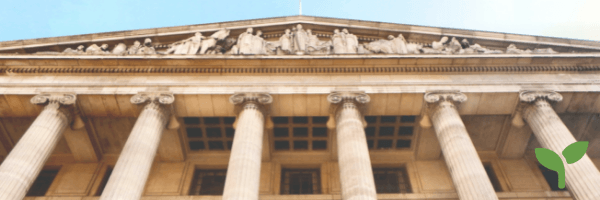
A basic guide to Succession Planning
15th February 2022
Guide To Effective Governance
10th March 2022Need a sole trader checklist? We’ve got you covered!
Firstly, it is important to understand that the terms sole trader, freelancer and self employed are often used interchangeably, but they all mean one thing: to HMRC, you are self-employed for tax purposes. We like to refer to our self employed clients as sole traders. This means you generally own and operate your business on your own.
We know that it can be overwhelming when you first set up your business, so we’ve created this handy checklist so you can make sure you get off to the best start:
- Register with HMRC as self employed. If you have never filed a Self Assessment, you will need to register for Self Assessment as a self employed worker. You can do that online here. You will need to register with HMRC by the 31st October following the end of the tax year in which you became self employed. For example, if you became self employed on 15th January 2022, you will have to register with HMRC by 31st October 2022. (The 21-22 tax year ending 5th April 2022)
- Make yourself aware of the taxes you will have to pay:
- Income tax – for most people without any other income, your personal allowance will be £12,570. This means you will pay no tax on profits under £12,570. If your profits exceed this amount, you will pay 20% on profits between £12,571-£50,000, 40% on profits £50,001-£150,000 and 45% on profits exceeding £150,000. You will pay this via Self Assessment
- Class 2 National Insurance Contributions (NICS) – You are exempt if your profits are under £6,515 (although you can choose to pay voluntarily in order to keep your contribution record up to date). Profits over £6,515 are charged at a flat rate amount of £3.05 and will be pro-rated in your first year of self-employment. You will pay this as a lump sum with you income tax via Self Assessment
- Class 4 NICS – this is charged at 9% of profits over £9,569, and 2% on profits over £50,270. This is charged as a lump sump via Self Assessment. Please note that both rates are due to increase for the 22-23 tax year by 1.25% as part of the ‘Health and Social Care Levy’.
- Payments on Account – when you file a self assessment tax return, if your total tax owed is over £1,000, you will have to make a payment on account towards the next tax year. We’ve written an FAQ post about it here.
- Set up separate bank account. This is not a legal requirement, however we always recommend keeping your business and personal expenses separate. This makes preparing your figures for self assessment much easier, and you don’t have to sift through your Netflix subscriptions and grocery bills. You can use a spare personal account, or set up a sole trader account with a bank. We love Starling for our sole trader clients (and limited companies too!)
- Consider how you are going to organise your business finances. You could collate everything in a spreadsheet (Excel or Google do great spreadsheet options). You might also want to consider some software – Xero is our favourite for more comprehensive options, but you could also look at 1Tap (which is what we give all our sole trader clients on our monthly package), Freeagent, Quickbooks Online. Some of the banks will also enable you to collate your information and log your receipts and print off a report at the end of the tax year (Starling, Monzo, Wise and Revolut, and some of the main high street banks can do this)
- Speak to an accountant. A lot of accounting firms (us included!) offer a free complimentary Discovery Call, or initial conversation. You can often get a few questions asked, and will not be flogged services you don’t need. It’s a good opportunity to understand whether working with an accountant will benefit your business and ensure you get off to the best start.
- Know what expenses can be claimed. One of the first questions we are always asked by future or new sole trader clients is “what expenses can I claim?”. The general rule of thumb, according to HMRC legislation, is any expense that is incurred ‘wholly and exclusively’ for the business. This means that anything with personal usage is not allowed. There are also a few additional rules for things such as clothing, travel, subsistence/food and drink, and entertaining that may end up confusing you. We’ve answered a few of our most common questions over on our Knowledge Base which will help get a bit clearer on what can be claimed as a business expense.
So what next?
Follow the steps above and you’ll be setting some good foundations for your new business. If you have further questions, or wish to get going with us as soon as possible, you can book in a Discovery Call here. Or follow us on Instagram to find out a bit more about how we work.



